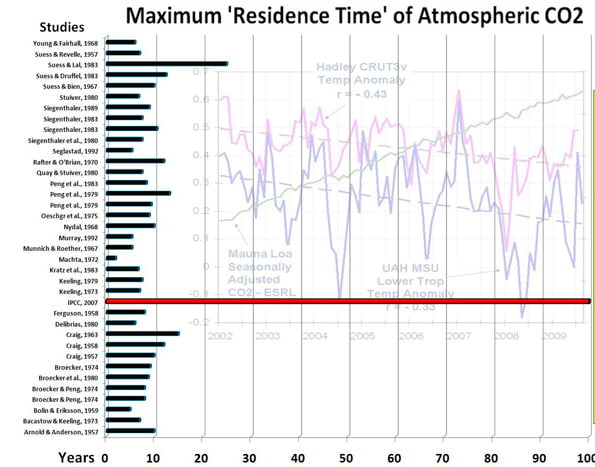 Daniel1960, on 2015-January-26, 08:45, said:
Daniel1960, on 2015-January-26, 08:45, said:
As you mentioned earlier with the gallon bucket, the argument supporting acceleration is that earlier measurements were wrong.
No.
If you are driving at 19 mph and a minute later you are driving at 32 mph, you have accelerated. The latest research makes it likely that you were actually driving at 14 mph to start, so your acceleration has been faster.
 Daniel1960, on 2015-January-26, 08:45, said:
Daniel1960, on 2015-January-26, 08:45, said:
Using two separate measuring systems, without validating their relationship to one another, is not good scientific practice.
There are not two measurement systems; there is only the rise in sea level in millimeters per year.
The rise in sea level is dominated by glacial melt and thermal expansion. You can (a) calculate the rise by from those elements, and you can (b) measure the rise directly. In fact, you get the current 3.2 mm per year rise by both (a) and (b), so the relationship has absolutely been validated.
The only discrepancy is that the earlier direct measurements (b) are slightly higher than the results from (a). Whether in the past (b) was right, (a) was right, or somewhere between (a) and (b) was right, there has still been acceleration.
And seriously, do you really think that the authors of the paper you recommended are totally ignorant of "good scientific practice?" If you do, why did you direct me to their paper to buttress your position in the first place?
 Daniel1960, on 2015-January-26, 08:45, said:
Daniel1960, on 2015-January-26, 08:45, said:
Even so, their mediam and maximum are much lower than others have predicted.
No, their 32-inch median corresponds to the upper end of mainstream predictions. The purpose of determining the upper limit of sea level rise was to provide city planners with the worst case to prepare for.
The growth of wisdom may be gauged exactly by the diminution of ill temper. — Friedrich Nietzsche
The infliction of cruelty with a good conscience is a delight to moralists — that is why they invented hell. — Bertrand Russell
 Daniel1960, on 2015-January-25, 15:59, said:
Daniel1960, on 2015-January-25, 15:59, said:
 Help
Help




